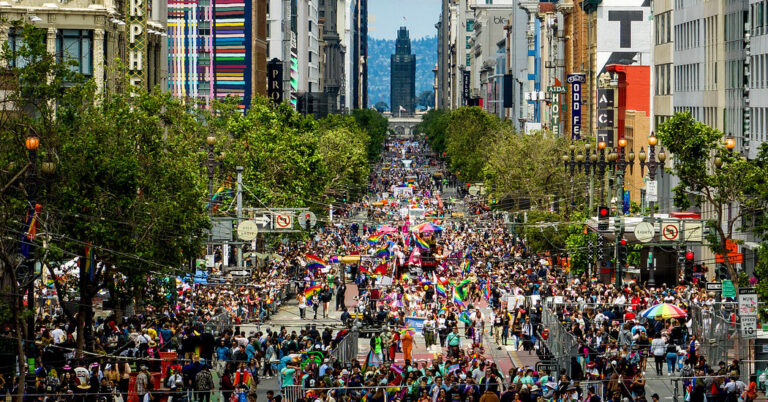Corporate Support for Pride Events Dwindles Amid Economic Concerns
As preparations for the San Francisco Pride event progress, executive director Suzanne Ford has encountered a troubling trend: many long-time corporate sponsors are retracting their support. Notably, major contributors such as Comcast, Anheuser-Busch, and Diageo have indicated they will not provide funding for the 2024 event, which previously received over $200,000 from these sponsors.
Shifting Corporate Commitment
Ford expressed her surprise at the sudden withdrawal of these sponsors, some of which have a legacy of support spanning decades. “It was totally shocking,” she noted, comparing the experience to a family member unexpectedly severing ties. With limited time left to secure financial backing for this summer’s festivities, the situation has raised alarms among Pride organizers nationwide.
While some corporations cite budget constraints and economic uncertainty as reasons for their withdrawal, organizers suspect there are deeper implications behind these decisions.
Political Climate Influencing Sponsorship Decisions
Wes Shaver, president of Milwaukee Pride, highlighted a growing trepidation among corporations regarding political repercussions. Many companies have voiced concerns that aligning themselves with Pride events may draw scrutiny from the current political administration. There are fears that sponsorship could be classified as promoting diversity, equity, and inclusion initiatives, potentially exposing businesses to backlash or penalties as a result of changing political tides.
As evidence of this shift, in recent weeks, several high-profile companies—including Booz Allen Hamilton, Deloitte, and the automotive dealership group Darcars—have also withdrawn their sponsorships for WorldPride, scheduled in Washington, D.C.
The Broader Implications for Pride Events
The trend of decreased corporate sponsorship reflects a complex intersection of economic pressures and political dynamics that could reshape the landscape of Pride events across the United States. Organizers remain hopeful but are preparing for challenges as they seek to cultivate new partnerships and maintain the spirit of Pride in a potentially hostile environment.
The diminishing financial support threatens not only the scale of such events but also their essence, as Pride celebrations are deeply rooted in community and inclusivity. Organizers are now tasked with navigating this new landscape while seeking to ensure that Pride events continue to honor their foundational principles.



